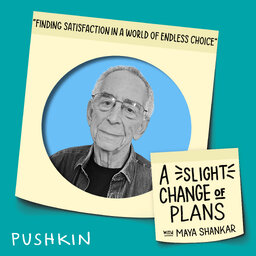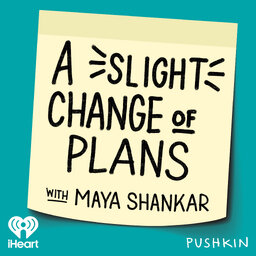Part 2: Life, Interrupted with Suleika Jaouad
In part two of Maya’s conversation with writer Suleika Jaouad, they talk about Suleika's epic road trip following her cancer treatments and her friendship with a man who spent half his life on death row. She also shares how she's choosing to live her life in light of a recent diagnosis that's left her in a more uncertain place than ever before.
Sign up for Maya's new newsletter here https://bit.ly/41lPqaZ and follow her on instagram @DrMayaShankar.
In 1 playlist(s)
A Slight Change of Plans
What happens when life doesn’t go according to plan? In this award-winning podcast, cognitive scient…Social links
Follow podcast
Recent clips

Finding Satisfaction in a World of Endless Choice
29:07

Brené Brown and Maya Talk “Heated Rivalry,” Mental Spirals, and Moral Beauty
41:59

The Invisible Weight of Olympic Gold
34:12
 A Slight Change of Plans
A Slight Change of Plans